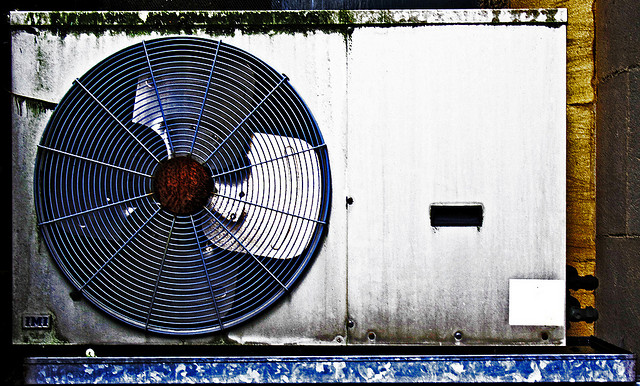Plenty of people worry about saving money in the middle of winter when the wind howls and they can hear their dollars slipping away through furnace fans and cracks underneath the door. But it’s a little harder to remember that summertime heat can be just as rough on your system, but this time when it involves cooling your house down. Air conditioning systems need proper maintenance when it grows warm, too, and there are plenty of ways you can encourage cool air in your home to help save money on energy bills.
Remember Your General Maintenance: Maintenance is particularly important in summer, when your system can get clogged and coated with dust and pollen, impairing functions. Follow general maintenance procedures to prepare your HVAC equipment for the heat. Replace or clean your vent filters so air can flow freely and your system doesn’t have to work too hard. If you have a heat pump, open up the outdoor unit and clean the fans and coils off with a soft cloth. Check all visible wiring, and tighten any loose bolts. If you really want to do a good job, get in your attic or crawlspace and closely inspect your ventilation tubes/ductwork for any cracks that need to be repaired.
Let Your House Get Hot: Make some major thermostat adjustments for summer weather. Don’t worry about keeping your house cool in the middle of the day, let it get hot and set the air conditioning to work around an hour or so before people start coming home (if you have pets, be more generous but try to let the temperature climb a bit regardless). Similarly, turn the thermostat off when you go to bed and open some windows. A few hours after it gets dark, the air outside is usually cold enough to help cool your house and save the HVAC system some work, as long as you remember to close all those windows when you get up in the morning.
Windows Matter: Speaking of windows, you may recognize this part of your house as the chief way that sunlight enters your home. All that sunlight means lots of thermal energy, which can quickly raise the temperature. Pay close attention to window management, and you can stop your house from heating up as much. If you want to make a significant investment, switch to tinted windows that block UV light. However, even shades and curtains can make a big difference if you remember to close them during the day and open them at night.
Include Room-Based Cooling Options: When an HVAC system turns in, it cools your entire house, and it has to work hard to do it. But you can give your system a big break by turning it off and only cooling one room with other means. If you and the family are only gathered in one spot during the hot parts of the day, switch from air conditioning to more spot-on measures like fans or window cooling units. Over time this can save you a lot of money.
Time to Talk About Coatings: The outside of your house matters, too. Generally, the lighter and brighter the surfaces on your house, the more easily they will reflect the sun and keep heat away. Switching to a white or reflective roof coating can make a big difference in sunny climates. It’s an expensive move, but you may be able to get energy tax credits for doing it. Otherwise, remember that insulation keeps heat as well as cold away, and check your attic and basement for any gaps or cracks letting outdoor air in.
Phillip Regis is a professional blogger that shares tip and advice to homeowners on how to keep their heating and air conditioning units fully functional. He writes for Atlas Heating and Air Service, a 24 hour heating, air conditioning and HVAC repair company in Denver CO.
Beat Summer Heat: Simple Ways to Improve Your Cooling System

